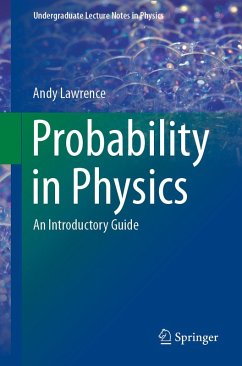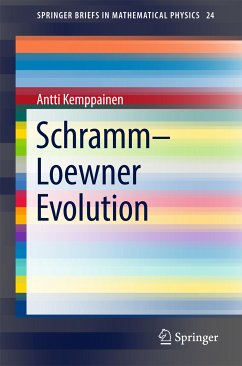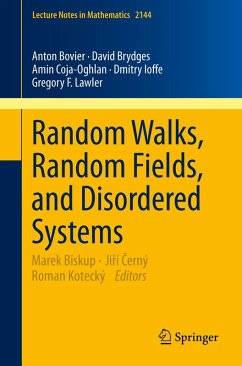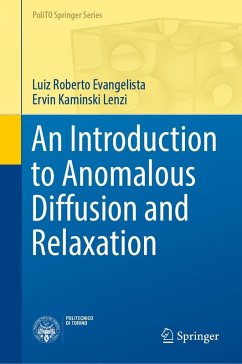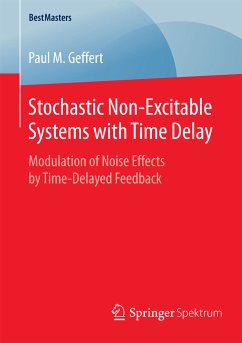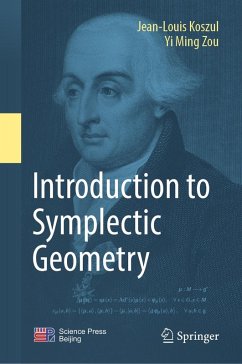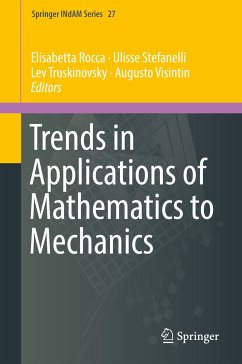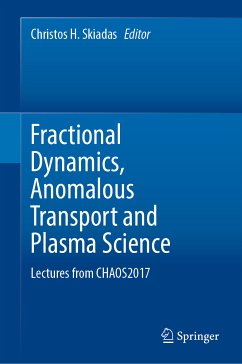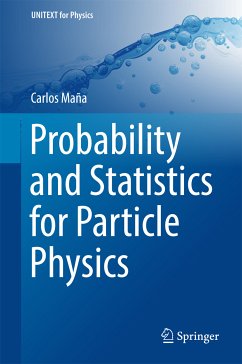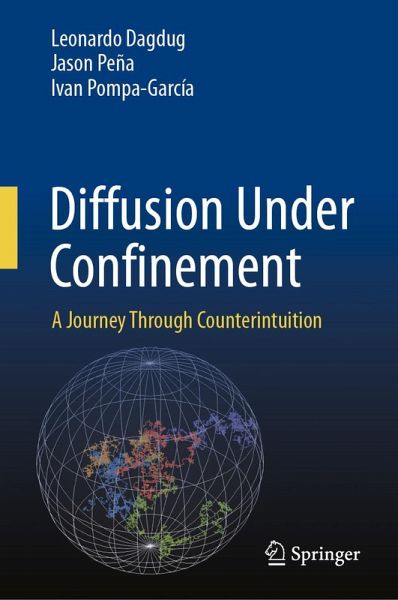
Diffusion Under Confinement (eBook, PDF)
A Journey Through Counterintuition
Versandkostenfrei!
Sofort per Download lieferbar
52,95 €
inkl. MwSt.
Weitere Ausgaben:

PAYBACK Punkte
26 °P sammeln!
This book offers the reader a journey through the counterintuitive nature of Brownian motion under confinement. Diffusion is a universal phenomenon that controls a wide range of physical, chemical, and biological processes. The transport of spatially-constrained molecules and small particles is ubiquitous in nature and technology and plays an essential role in different processes. Understanding the physics of diffusion under conditions of confinement is essential for a number of biological phenomena and potential technological applications in micro- and nanofluidics, among others.Studies on di...
This book offers the reader a journey through the counterintuitive nature of Brownian motion under confinement. Diffusion is a universal phenomenon that controls a wide range of physical, chemical, and biological processes. The transport of spatially-constrained molecules and small particles is ubiquitous in nature and technology and plays an essential role in different processes. Understanding the physics of diffusion under conditions of confinement is essential for a number of biological phenomena and potential technological applications in micro- and nanofluidics, among others.
Studies on diffusion under confinement are typically difficult to understand for young scientists and students because of the extensive background on diffusion processes, physics, and mathematics that is required. All of this information is provided in this book, which is essentially self-contained as a result of the authors' efforts to make it accessible to an audience of students from avariety of different backgrounds. The book also provides the necessary mathematical details so students can follow the technical process required to solve each problem. Readers will also find detailed explanations of the main results based on the last 30 years of research devoted to studying diffusion under confinement. The authors approach the physical problem from various angles and discuss the role of geometries and boundary conditions in diffusion.
This textbook serves as a comprehensive and modern overview of Brownian motion under confinement and is intended for young scientists, graduate students, and advanced undergraduates in physics, physical chemistry, biology, chemistry, chemical engineering, biochemistry, bioengineering, and polymer and material sciences.
Studies on diffusion under confinement are typically difficult to understand for young scientists and students because of the extensive background on diffusion processes, physics, and mathematics that is required. All of this information is provided in this book, which is essentially self-contained as a result of the authors' efforts to make it accessible to an audience of students from avariety of different backgrounds. The book also provides the necessary mathematical details so students can follow the technical process required to solve each problem. Readers will also find detailed explanations of the main results based on the last 30 years of research devoted to studying diffusion under confinement. The authors approach the physical problem from various angles and discuss the role of geometries and boundary conditions in diffusion.
This textbook serves as a comprehensive and modern overview of Brownian motion under confinement and is intended for young scientists, graduate students, and advanced undergraduates in physics, physical chemistry, biology, chemistry, chemical engineering, biochemistry, bioengineering, and polymer and material sciences.
Dieser Download kann aus rechtlichen Gründen nur mit Rechnungsadresse in A, B, BG, CY, CZ, D, DK, EW, E, FIN, F, GR, HR, H, IRL, I, LT, L, LR, M, NL, PL, P, R, S, SLO, SK ausgeliefert werden.
Alle Preise in Euro und inkl. der gesetzl. MwSt. | Innerhalb Deutschlands liefern wir preisgebundene Bücher versandkostenfrei. Weitere Informationen: bitte hier klicken
Support
Bitte wähle dein Anliegen aus:
Rechnungen
Bestellstatus
Retourenschein
Storno



